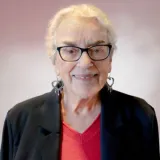‘The’ Topic of the Year: 2023 Year in Review From EDVIEW360
This was the year it seemed everyone was talking about the science of reading! Even though it’s a body of research that began 50 years ago, this was the year it broke through as one of the most talked-about topics in education.
Of course, here at EDVIEW360, we’re always talking about the science of reading, and we’re so grateful to our community for supporting ongoing conversations with thought leaders about literacy and best practices for reading and writing instruction.
Thanks to the ongoing work of organizations like The Reading League, the International Dyslexia Association®, the National Council on Teacher Quality, and the American Federation of Teachers with state departments of education, the need for literacy instruction based on the science of reading is now appearing in state laws across the country.
The need for established literacy best practices has never been greater, and information seekers should begin with EDVIEW360’s top content from 2023:
TOP BLOG
Why the Science of Reading Needs the Science of Teaching
Dr. Louisa Moats articulates the importance of direct instruction in teaching based on the Science of Reading. She reminds us that teaching is difficult and complex, and we need to value what it takes to coach and nurture teachers to grow in their practice. Dr. Moats believes that we also need the Science of Teaching to develop instructional best practices, such as:
- Making sure lesson goals are clear.
- Ensuring that content is presented in digestible, understandable, and logical sequences.
- Monitoring and tracking student progress is essential.
- The Science of Teaching will help transform success for teachers and students.

About the Author: Dr. Louisa Moats has been a teacher, psychologist, researcher, graduate school faculty member, and author of many influential scientific journal articles, books, and policy papers on the topics of reading, spelling, language, and teacher preparation. Dr. Moats is the author of LANGUAGE! Live®, a blended reading intervention program for grades 5–12, and the lead author of LETRS® professional development and the textbook, Speech to Print: Language Essentials for Teachers. Dr. Moats is also co-author of Spellography, a structured language word study program.
TOP PODCAST
Why the ‘Science of Reading’ Needs the ‘The Science of Teaching’—A Conversation Between 2 Literacy Leaders
Dr. Louisa Moats and Dr. Anita Archer are longtime friends and colleagues. Listen in as these two literacy pioneers discuss the importance of helping teachers understand both the “how” and “what” of good literacy instruction. Teachers need to understand instructional methods to get the full benefit of the science of reading. It is the planned, intentional process of accomplishing clear objectives with students. These veteran literacy leaders agree that it’s the marriage of content and instruction, or the science of reading and the science of teaching that will generate the most positive student outcomes. And, you can download some free science of reading stickers to use on social media.


About the Presenters: Dr. Moats (above) and Dr. Anita Archer. Dr. Archer serves as an educational consultant to state departments and school districts on explicit instruction and literacy. She has presented in all 50 states and many countries including Australia. She has co-authored numerous curriculum materials including Phonics for Reading (Curriculum Associates), a three-level intervention program REWARDS® (Voyager Sopris Learning®), a five-component literacy intervention program; and a best-selling textbook, Explicit Instruction: Effective and Efficient Teaching (Guilford Publications).
TOP WEBINAR
Sound Walls in Your Classroom: The Pathway to Reading Fluency
In this webinar, literacy and sound wall expert Dr. Mary Dahlgreen walks viewers through the implementation of sound walls in literacy practice and provides tips for helping students make the speech-to-print connection. Sound walls are useful to help students grow in sight-word recognition and automaticity by connecting the phoneme and the grapheme. Dr. Dahlgreen shares useful strategies, such as daily practice, analysis of writing samples, and the importance of high-frequency words.

About the Presenter: As founder and president of Tools 4 Reading, Dr. Dahlgren has always focused on developing practical tools and training opportunities to bridge the gap between the science of reading and classroom practice. She brings more than 25 years of experience in the field of education, having served as a dyslexia therapist, elementary classroom teacher, international literacy consultant, national LETRS® trainer, and author.
COUNTDOWN TO 2024
Now that the importance of the science of reading and science of teaching is better known, 2024 should be the year educators really move the needle on literacy instruction and proficiency. Momentum for science of reading-based instruction has accelerated and is becoming more available to educators, which opens the door to more positive student outcomes.
Make sure you’ve subscribed to EDVIEW360, so you don’t miss useful blog posts, podcasts, and webinars in the new year! Subscribe here.
And, thank you for all the work you do to help students read and write with proficiency. Happy holidays!
